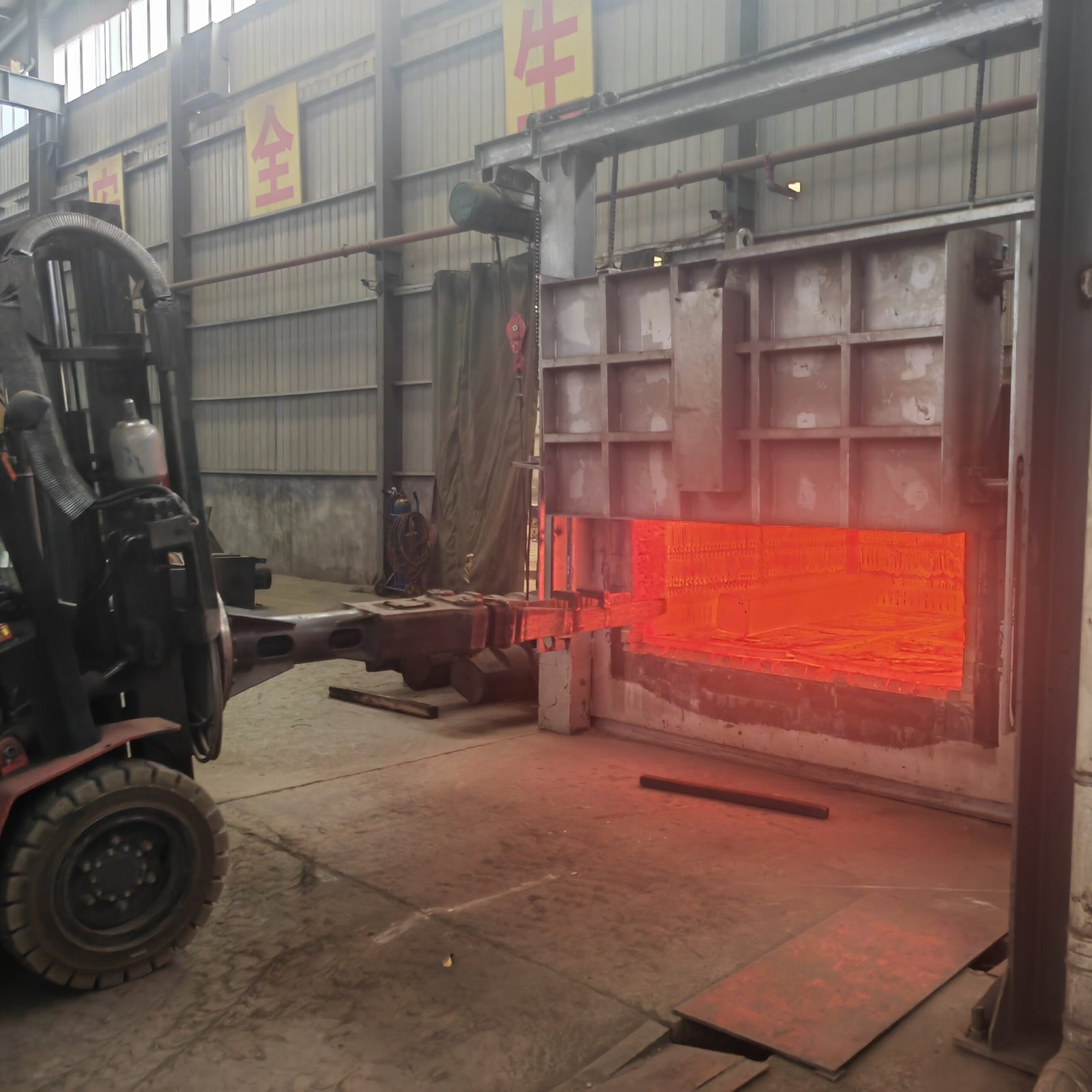Imagine driving along Bao Titanium Road in the Baoji High-tech Zone, a nearly 3-kilometer stretch flanked by small and medium-sized titanium enterprises, each like a row of storefronts displaying a dazzling array of titanium alloy materials. While these businesses may resemble ordinary shops, they each play a significant role in the global titanium industry. Baoji, a small city in western China, is not only the heart of China’s titanium industry but also one of the world’s key hubs for titanium production. With an industry scale reaching 61 billion yuan, Baoji ranks first in China and second globally, earning the reputation of being the “Cradle of China’s Titanium Industry.”

The Beginnings
Titanium, a metal that resembles steel in appearance but is much lighter, possesses a remarkable set of characteristics: it is 45% lighter than steel, its reserves are 16 times greater than those of copper, nickel, lead, and zinc combined, and its strength ranks it among the hardest metals in existence. For these reasons, titanium has earned the title of “The Metal of the 21st Century.” In the future, its applications will be vast, with demand continuing to rise. Whether in high-end fields such as aviation, aerospace, and naval ships, or in civilian sectors like automotive, construction, and sports, titanium’s use will only expand. Additionally, with advancements in technology and the rise of 3D printing materials, titanium will find new growth opportunities in this emerging field.
When it comes to Baoji, people often think of it as China’s “Titanium Valley.” However, Baoji is not a titanium ore-producing region but rather a hub focused on the processing of titanium materials. Initially, Baoji lacked any significant industrial advantages, but everything changed with the establishment of Bao Titanium Group. At that time, it was as if Baoji had discovered a new source of energy, and the titanium industry began to take off here, gradually growing into the scale we see today.
You should know that during China’s “Third Front” movement, several major heavy industries began setting up operations in Baoji, and Bao Titanium Group was one of them. It was like a shot of adrenaline for Baoji, attracting large numbers of researchers and engineers to the area. From that point on, Baoji slowly accumulated the production capabilities and technological expertise that would eventually shape its titanium industry.

Bao Titanium Group
Thanks to the leadership of Bao Titanium Group, this area has attracted numerous small and medium-sized titanium companies, creating a powerful industrial cluster. Especially after the reform and opening up, private enterprises experienced explosive growth here, and the technological spillover effect of Bao Titanium is nothing to be underestimated. Many of the smaller titanium firms are either suppliers or subcontractors for Bao Titanium, gradually forming a tightly-knit industrial chain. Companies like Yunxin Metal Materials Co., Ltd. have also carved out important roles within this ecosystem, contributing to Baoji’s thriving titanium industry.
From the establishment of Bao Titanium Group at the foot of the Qinling Mountains to today, Baoji’s titanium industry has a development history spanning nearly 60 years. During this time, Bao Titanium Group and a large number of private titanium companies have driven the city’s titanium industry to new heights. Today, Bao Titanium Group is truly a leader in the industry. It is the largest rare metal production and research base in China, specializing in titanium and titanium alloys. You can imagine that it has formed a complete titanium industrial chain, covering almost every aspect of the titanium industry—from mining titanium sponge ore to smelting, processing, further refinement, and equipment manufacturing. In fact, Bao Titanium’s annual titanium production accounts for more than 40% of the national total, making it the “dominant force” in the titanium world!
Furthermore, Bao Titanium also plays a crucial role in setting standards for titanium and titanium alloys, having established China’s national titanium standards.

Titanium Expo Pavilion
As China’s largest titanium and rare metals research and production base, Baoji has established a complete industrial chain, covering nearly every aspect of the titanium industry—from “titanium sponge, titanium ingots, titanium forging and rolling, titanium and titanium alloy processing materials, to titanium deep-processing products.” This comprehensive chain has helped Baoji become a key player in the global titanium industry. Currently, the annual output value of this industrial cluster exceeds 60 billion yuan, with 136 enterprises above a certain scale, 110 of which are high-tech companies. Baoji’s titanium production accounts for 95% of China’s high-end market, cementing its significant position in the industry.
Looking ahead, Baoji aims to raise the total output value of its titanium and new materials industry cluster to 100 billion yuan. Additionally, it strives to have five listed companies in the coming years. Today, Baoji’s titanium products are already being used in major national projects such as domestic aircraft carriers, the C919 large passenger aircraft, deep-sea submersibles, and the Chang’e lunar exploration mission—truly serving as the unsung heroes behind some of China’s most ambitious ventures. Beyond military applications, titanium’s use is also expanding in civilian sectors like aerospace, healthcare, and sports leisure. With the continued development of the industry, the future of Baoji’s titanium sector looks exceptionally promising.



